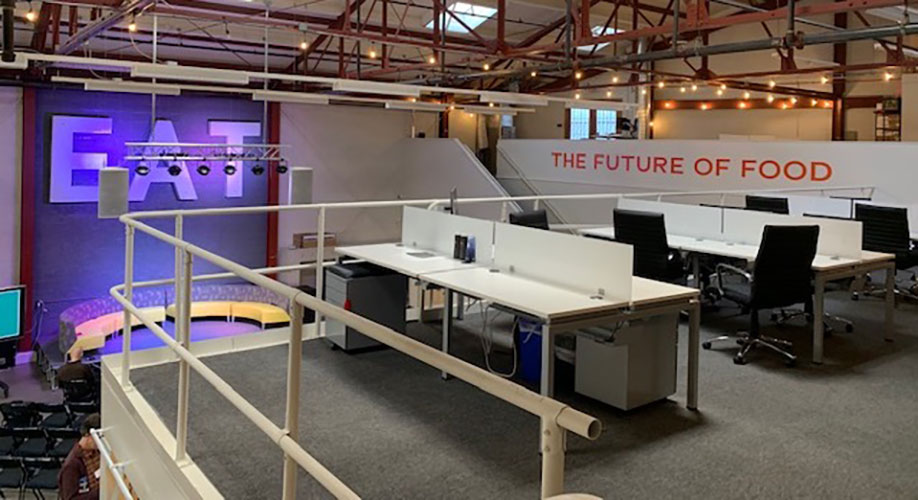A new food future requires a reimagined innovation framework.
I recently had the opportunity to read a very thought-provoking publication called Rethinking Humanity by the team at RethinkX. They assert that we are at a rupture point as the ‘system’ is out of equilibrium based on a rapid change in the System State where accelerators are overtaking the brakes in the ‘system’.
Within the ‘food system’, we see many accelerators that are pushing us out of equilibrium: on the negative side there is climate change (droughts, flooding), loss of soil, increase in population, etc., but we also see technology accelerators such as biotechnology, AI, and reductions in energy costs.
The intersection of these accelerators, in a highly complex system, requires a new way to explore; a new way to innovate.
At MISTA, innovation is focused on evolving people, teams, and companies to create transformational futures.

Enabling the Innovation Journey
There are two requirements to create an innovation journey that unlocks opportunities for your company to adapt and evolve:
The first is to remove constructs that have been built over years that no longer serve the companies innovation mindset. Most constructs are in place to drive efficiency, speed, and simplicity. None of these support innovation capabilities. Constructs that don’t increase the capabilities (people, teams, and companies) to adapt and evolve as an organization, should be re-imagined. We call this is unwiring.
The second is to build new frameworks that enable people, teams and companies to effectively create new futures. Frameworks are an underlying system or concept that can be leveraged in many ways and should serve as more than one thing to more than one group. Frameworks support evolutionary thinking with regenerative returns. Frameworks help us to rewire.
The MISTA Platform (Figure 1) is a set of frameworks. It enables people, teams, and companies to build and practice regenerative innovation, leveraging four key quadrants: Experiences, Think Tank, Sandbox, and Strategic Integration.

Figure 1
Frameworks are required to maximize new experiences across the broad set of the systems we operate. These same frameworks help us create new frameworks that will build and regenerate each other. Think of this as building frameworks on top of frameworks, supporting each other; imagine the new experiences…
Maximizing Experiences: The MISTA Ecosystem (Figure 2)

Figure 2
No single company can transform the food system, or even themselves, on their own. MISTA’s unparalleled ecosystem of 30+ Members includes Givaudan, Ingredion, AAK, Chr. Hansen, Danone, Mars and Conagra alongside a selection of disruptive, early-stage companies and world-class partners. Together, this Ecosystem creates unlimited opportunities for new experiences and frameworks, across the entire food system and beyond.
Maximizing Experiences: The MISTA Regenerative Innovation Model (Figure 3)
Frameworks are the foundation to unwire constructs in our self, out teams, our company, and every system we live and depend on. These same frameworks allow us to imagine new futures, where old constructs may not apply, and new systems are emerging. We call this future-back. This future-back framework allows us to experience, reflect and integrate, with our future self, team, or company, so we become more aware. We integrate this awareness BACK to today, so we are better prepared to adapt and evolve the future, as we imagined. This is rewiring.
The Regenerative Innovation Model is a framework to increase the effectiveness, and degree, to which we (people, teams, and companies), adapt and evolve.

Figure 3
Together, these frameworks are the foundation to the MISTA Platform. They are designed to support the innovation journeys of people, teams, and companies who are passionate about transforming the global food system.
The current construct of the food system, and therefore most companies within the food system, is not optimized for rapid evolution. Deconstructing and reconstructing (unwiring and rewiring) the food system will require many companies working together with the same purpose. Just like in nature, a robust ecosystem can sustain and regenerate while offering protection and support under stress.


